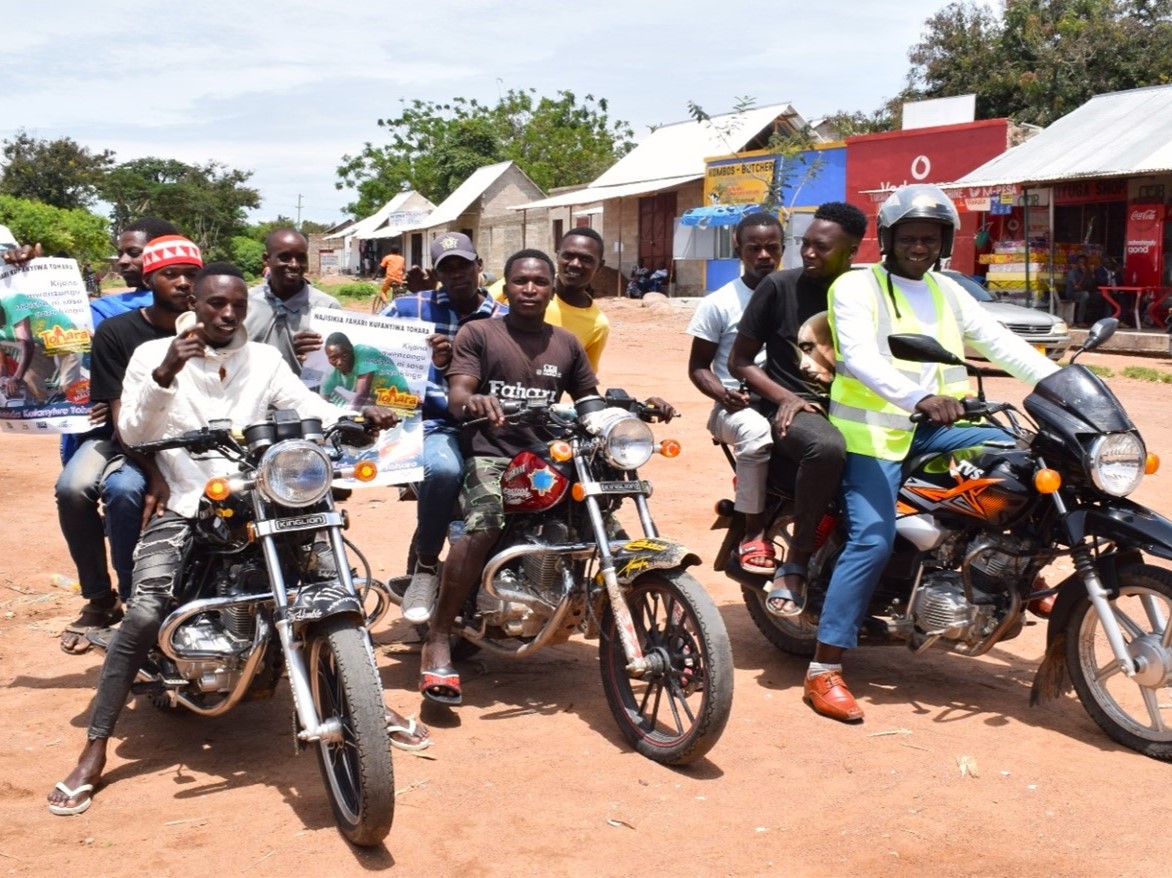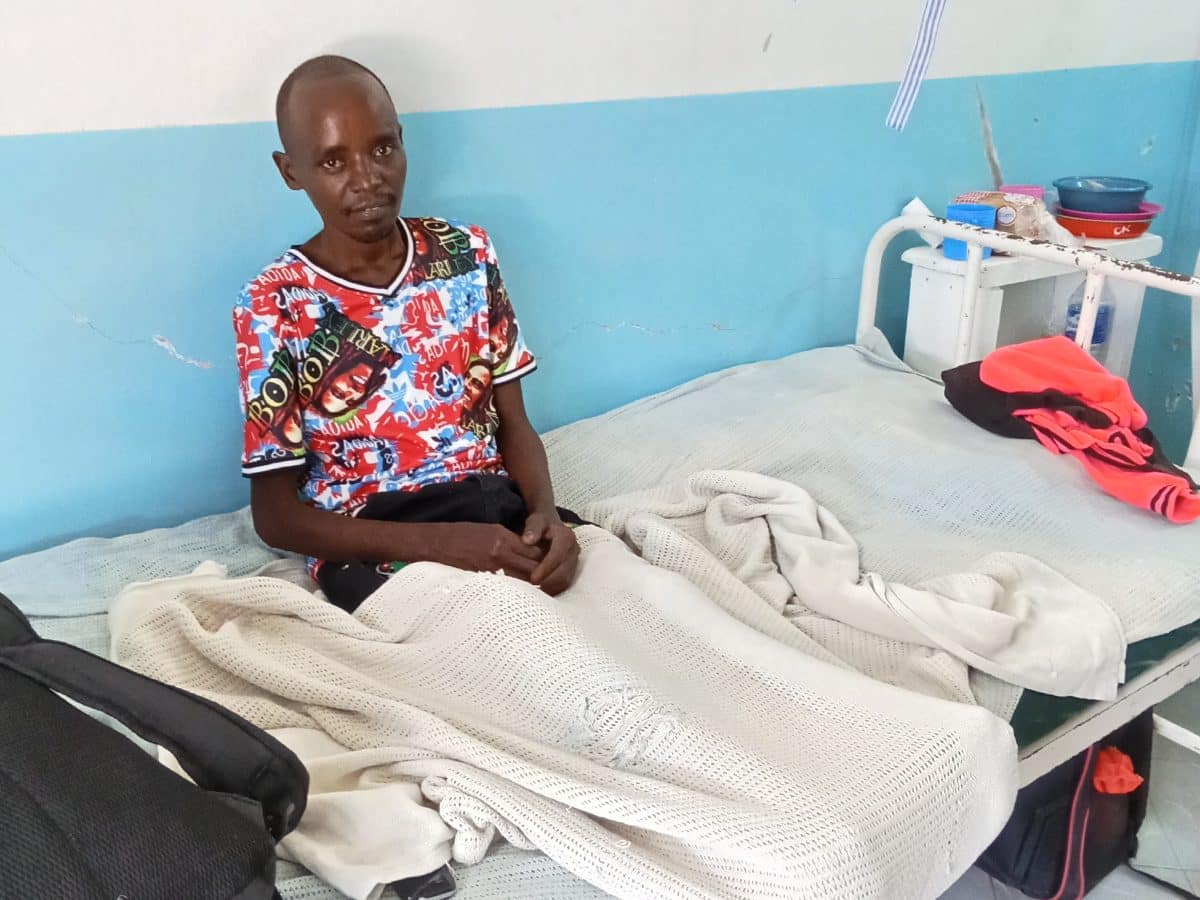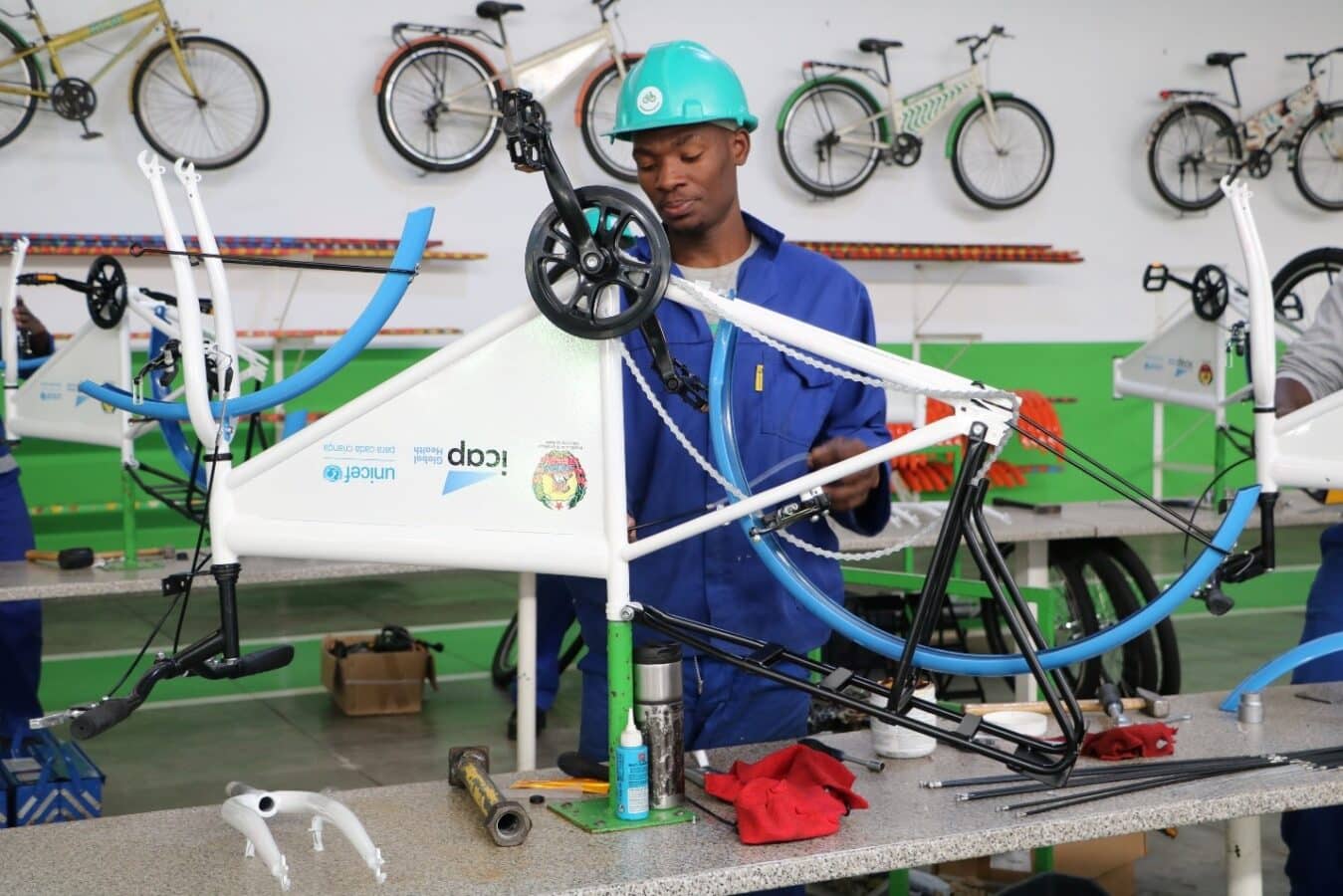In Tanzania’s Mwanza Region, ICAP has enlisted the help of a unique group of community health workers – motorcycle taxi drivers – to promote voluntary medical male circumcision (VMMC) among young men between the ages of 18 and 29. Male circumcision is considered an important intervention for HIV prevention because it removes tissue, which reduces the surface area for potential viral entry. This offers significant protection against HIV transmission, particularly when used alongside other prevention strategies such as condom use, HIV testing, and counseling.
“Motorcycle taxi driving is one of the key sources of income for young men in both rural and urban areas of Tanzania, where young men are at risk of HIV due to factors such as having multiple sexual partners, hiring of commercial sex workers, disposable cash income, and high rates of alcohol use,” explained Omari Msumi, MD, MPH, ICAP’s director of prevention in Tanzania. “Given their mobility and networks, motorcycle taxi drivers create a unique opportunity to reach other young men at risk.”
Circumcision is not commonly practiced in some communities, and there are several barriers that prevent men from choosing to undergo VMMC, including lack of information about its benefits. Some men feel concerned about what happens to their removed skin, while others fear the stigma of disclosing their uncircumcised condition because of community expectations around circumcision. The need to abstain from sexual activity for the healing period of six weeks can also cause reluctance to go through with the procedure.
ICAP piloted the initiative in Mwanza Region’s Kwimba District and approached the motorcycle taxi – or “bodaboda” drivers – at their work stations, providing them with information about the health benefits of VMMC, including the prevention of HIV and STIs, as well as improved hygiene and a lower risk of urinary tract infection and penile cancer. ICAP then recruited the bodaboda drivers to reach out to and educate other young men in their communities about the procedure, connecting them to health facilities and helping them book appointments to undergo the procedure.
“We were able to conduct a series of mobilization events and provide education to our fellow youth and adults on the importance of VMMC and the risk associated if one is not circumcised,” said Richard Mahahila, a bodaboda driver, who is also a peer educator at Sumve Hospital in Kwimba. “Many understood and went for VMMC services in the facilities, and we will continue to do this work until everyone is reached.”
Through this initiative, a total of 2,084 clients were circumcised between October 2022 and March 2023, almost a quarter of Kwimba District’s 2023 goal of 8,320 VMMCs.
“We have seen a huge increase in the number of young boys and men visiting clinics for VMMC. Community engagement has been central in facilitating its acceptance, especially in non-circumcising communities,” said Joseph Enos Charles, a VMMC service provider at Sumve Hospital, discussing the pilot initiative’s success.
The project is part of a larger ICAP initiative to improve VMMC rates in Tanzania, through the FIKIA Plus project, which is funded by the President’s Emergency Plan for AIDS Relief (PEPFAR) through the US Centers for Disease Control and Prevention (CDC). Under the FIKIA plus project in Mwanza, a total of 39,714 men have been reached for VMMC for the prevention of HIV, sexually transmitted infections (STIs), and other health conditions.
About ICAP
A major global health organization that has been improving public health in countries around the world for two decades, ICAP works to transform the health of populations through innovation, science, and global collaboration. Based at Columbia Mailman School of Public Health, ICAP has projects in more than 40 countries, working side-by-side with ministries of health and local governmental, non-governmental, academic, and community partners to confront some of the world’s greatest health challenges. Through evidence-informed programs, meaningful research, tailored technical assistance, effective training and education programs, and rigorous surveillance to measure and evaluate the impact of public health interventions, ICAP aims to realize a global vision of healthy people, empowered communities, and thriving societies. Online at icap.columbia.edu








